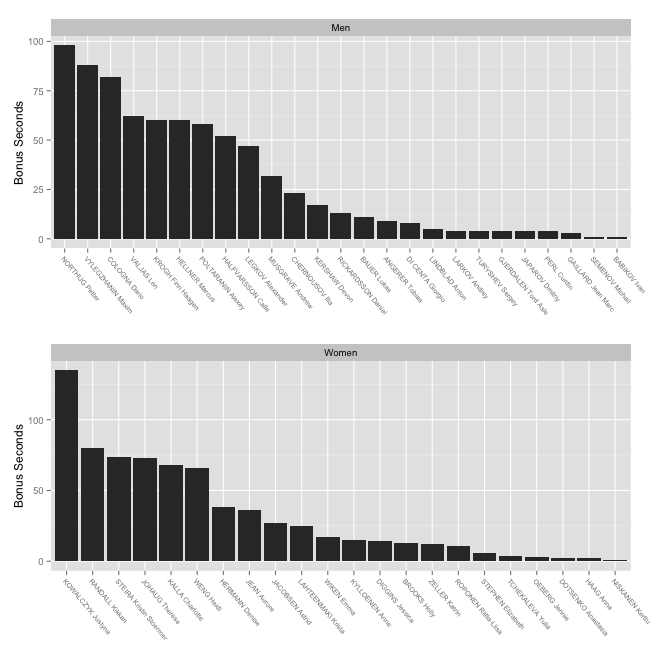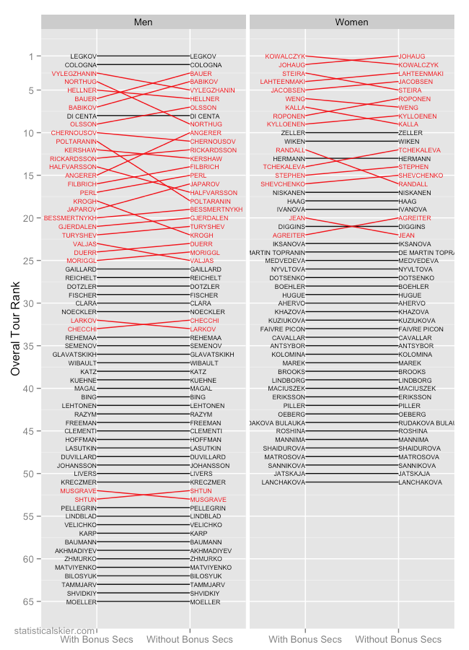I’ve gotten requests to do this in the past, and did again this year. Nothing super complicated, we just add up all the bonus seconds earned by all the Tour de Ski finishers and add them back onto each person’s time. Obviously, some bonus seconds were earned by folks who ended up not finishing the Tour. Those seconds are lost forever, they aren’t reallocated to other skiers, so we’re ignoring them as well.
To get all nerdy on you, playing “what ifs” like this remind me of a common danger when interpreting the results of a multiple regression analysis. (I know, right? What a totally obvious metaphor…)
It’s tempting when looking at regression coefficients to to say things like, “If we change this variable by X units, then the response variable will change by Y units”. This is intuitive, but often misleading. The reason is that it’s rare that you can really alter one variable without others changing as well. (One exception, of course, is when you can design a controlled experiment.)
What does this have to do with Tour de Ski rankings with the bonus seconds removed (or added back on, if you prefer)? Well, the athletes likely would have raced differently if the gaps between them, or their current standings, had been different. So interpret the following with caution.
First of all, who earned bonus seconds at all?

That’s who.
If we add those seconds back onto each person’s total Tour time, we this:

Big winners? Lukas Bauer, Ivan Babikov, Therese Johaug, Tobias Angerer.
Big losers? Petter Northug, Justyna Kowalczyk, Kikkan Randall, Alexey Poltaranin, Kristin Stoermer Steira.
But of course, as I said, certainly Kowalczyk would have skied differently had she not racked up such a big lead in part due to bonus seconds. So I’m reluctant to say with any certainty that Johaug would have won the Tour in this scenario.
Post a Comment